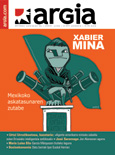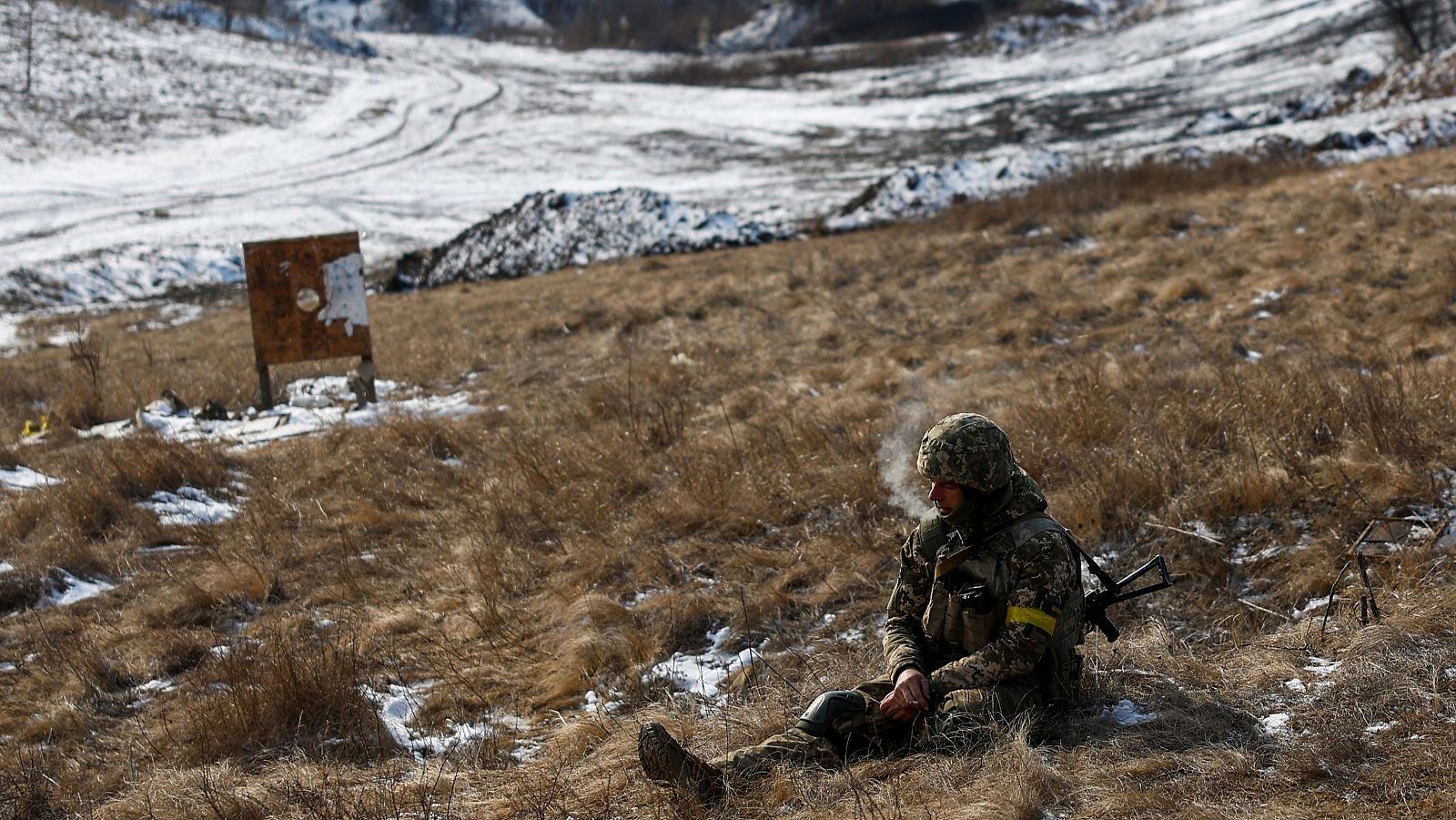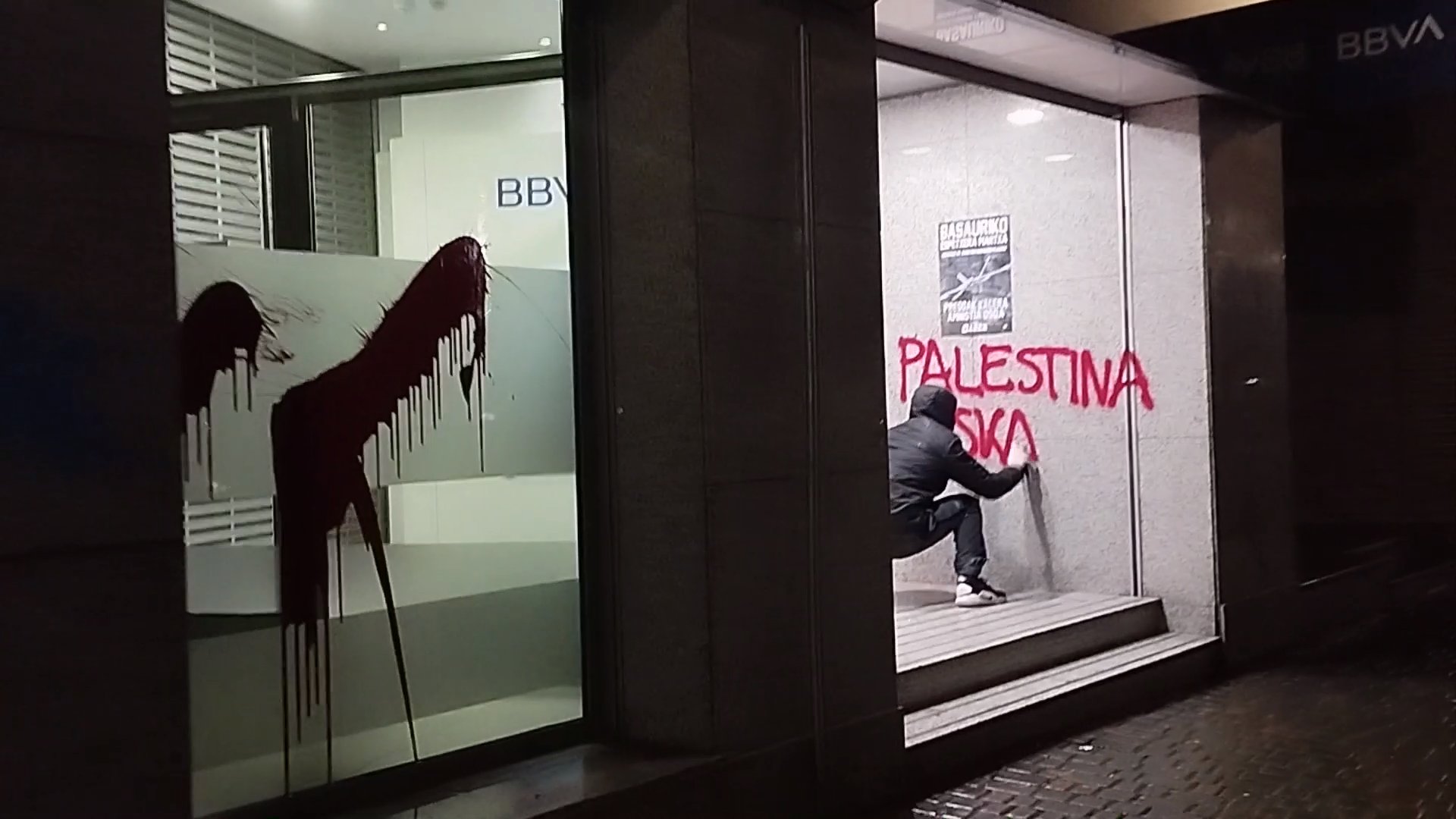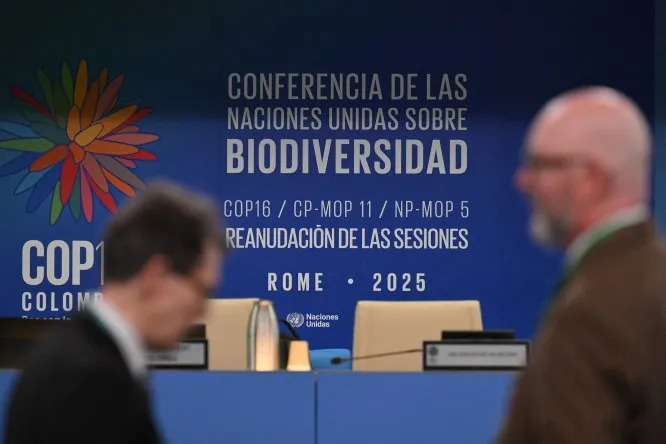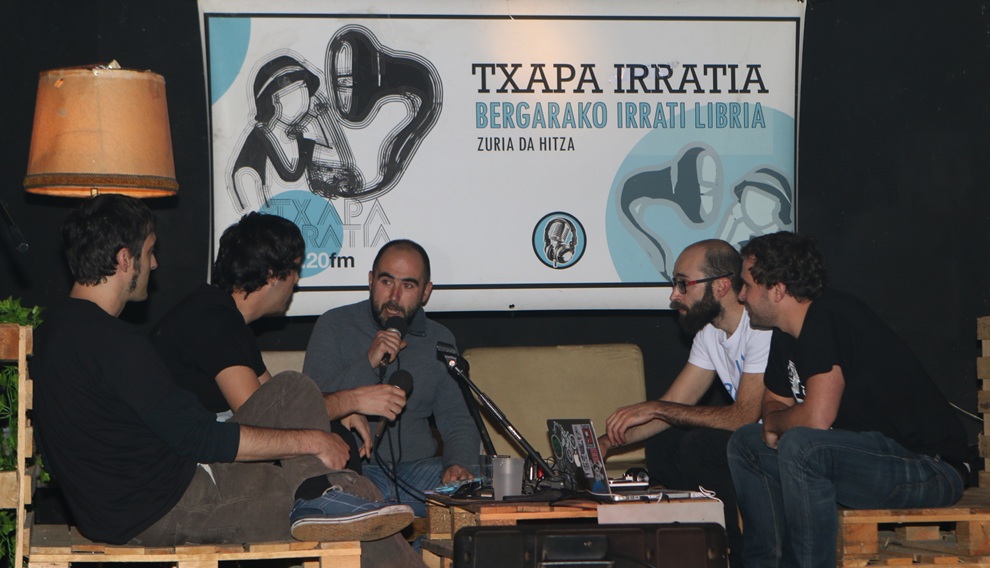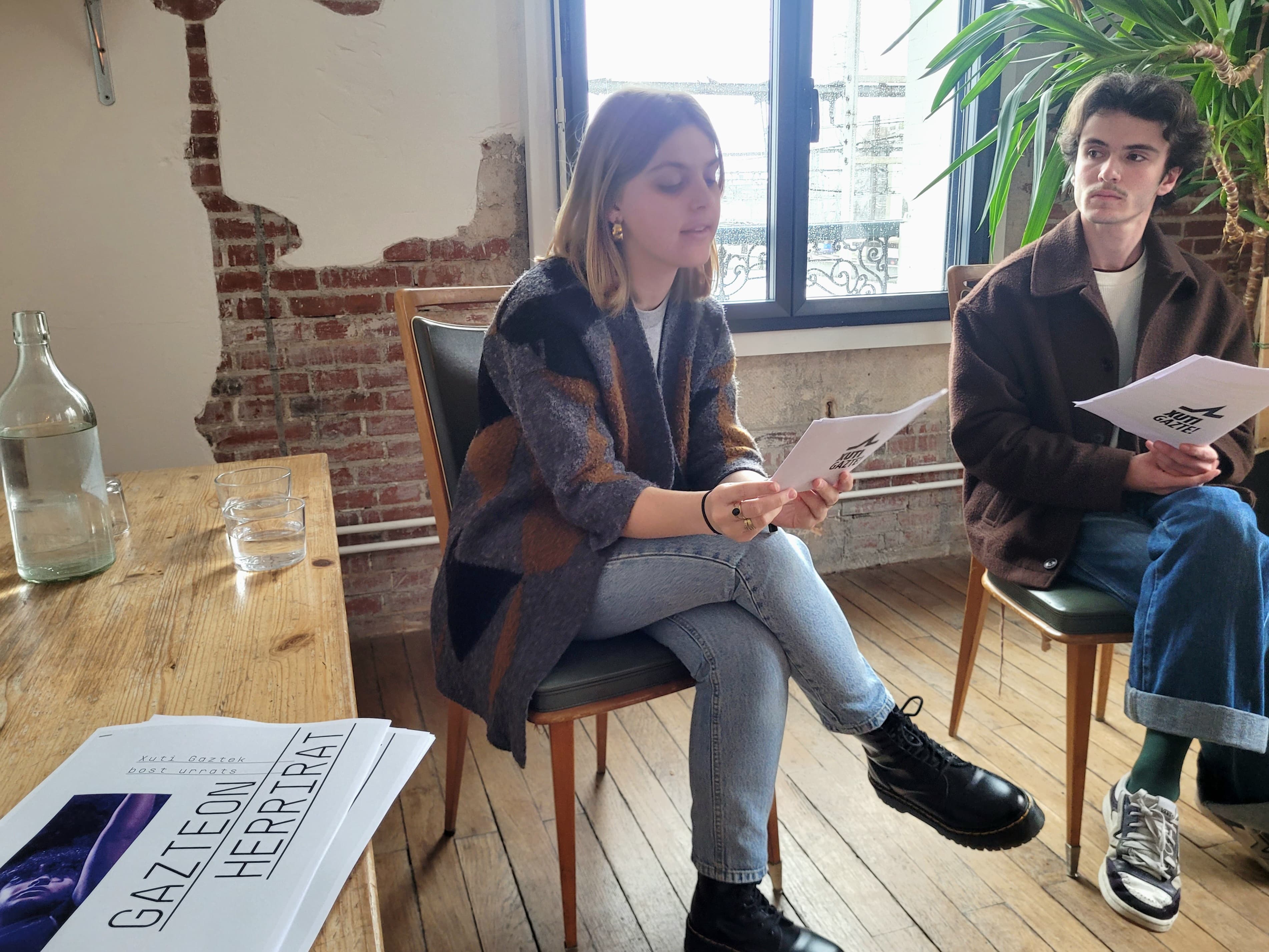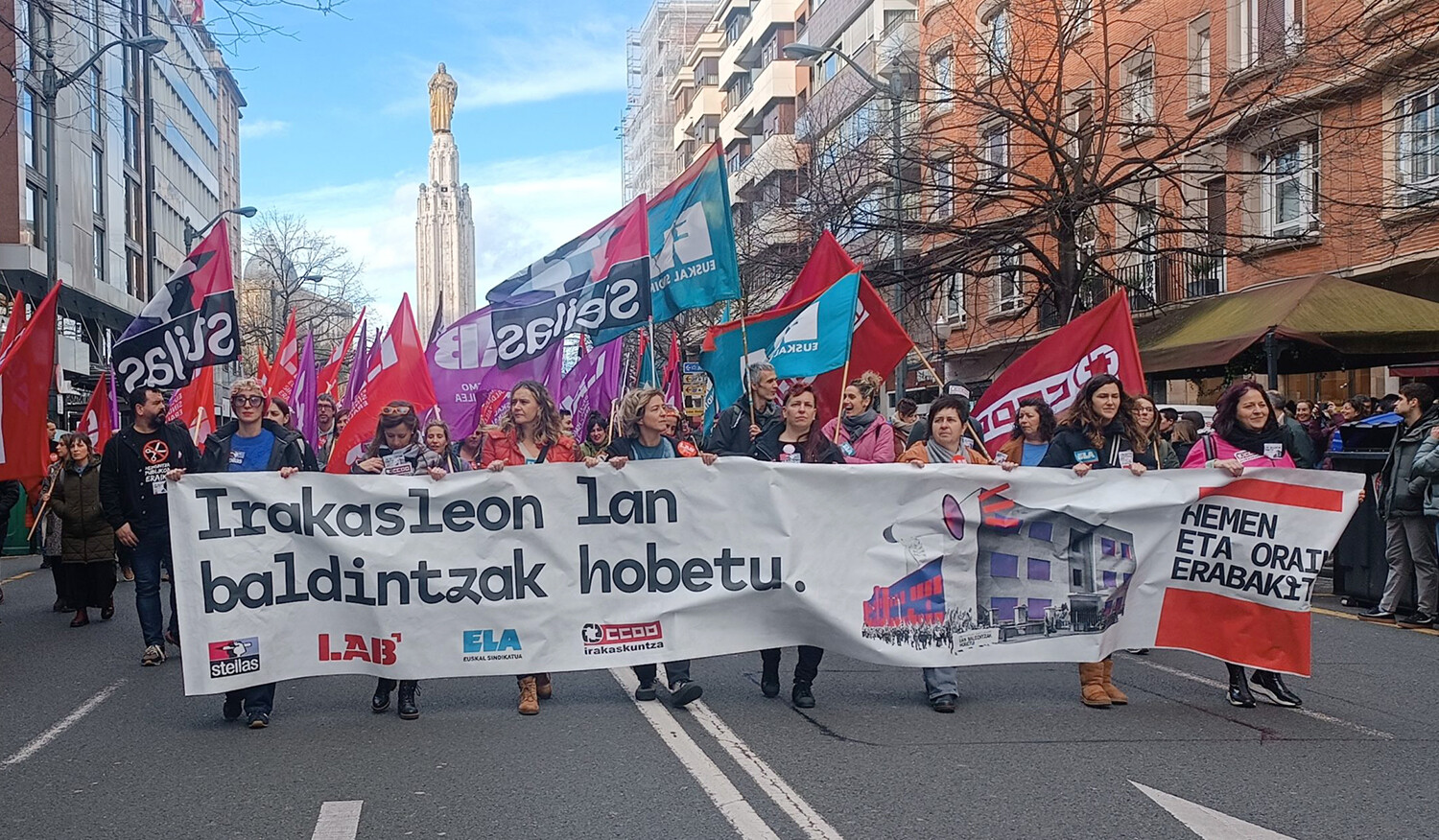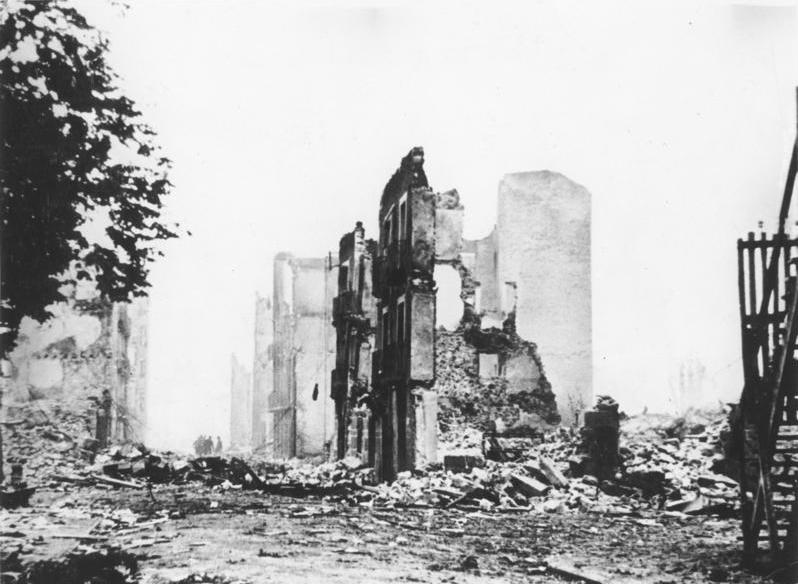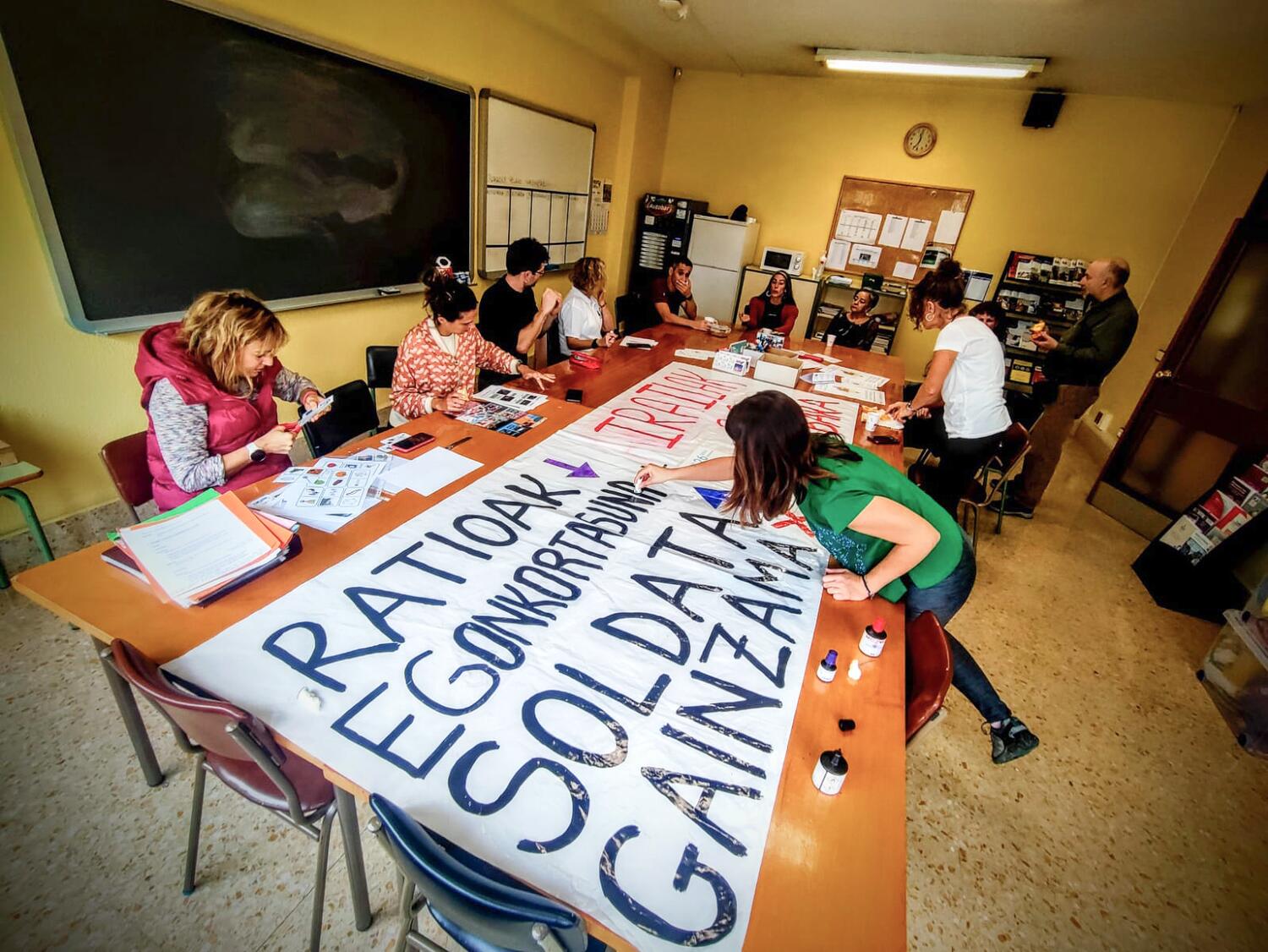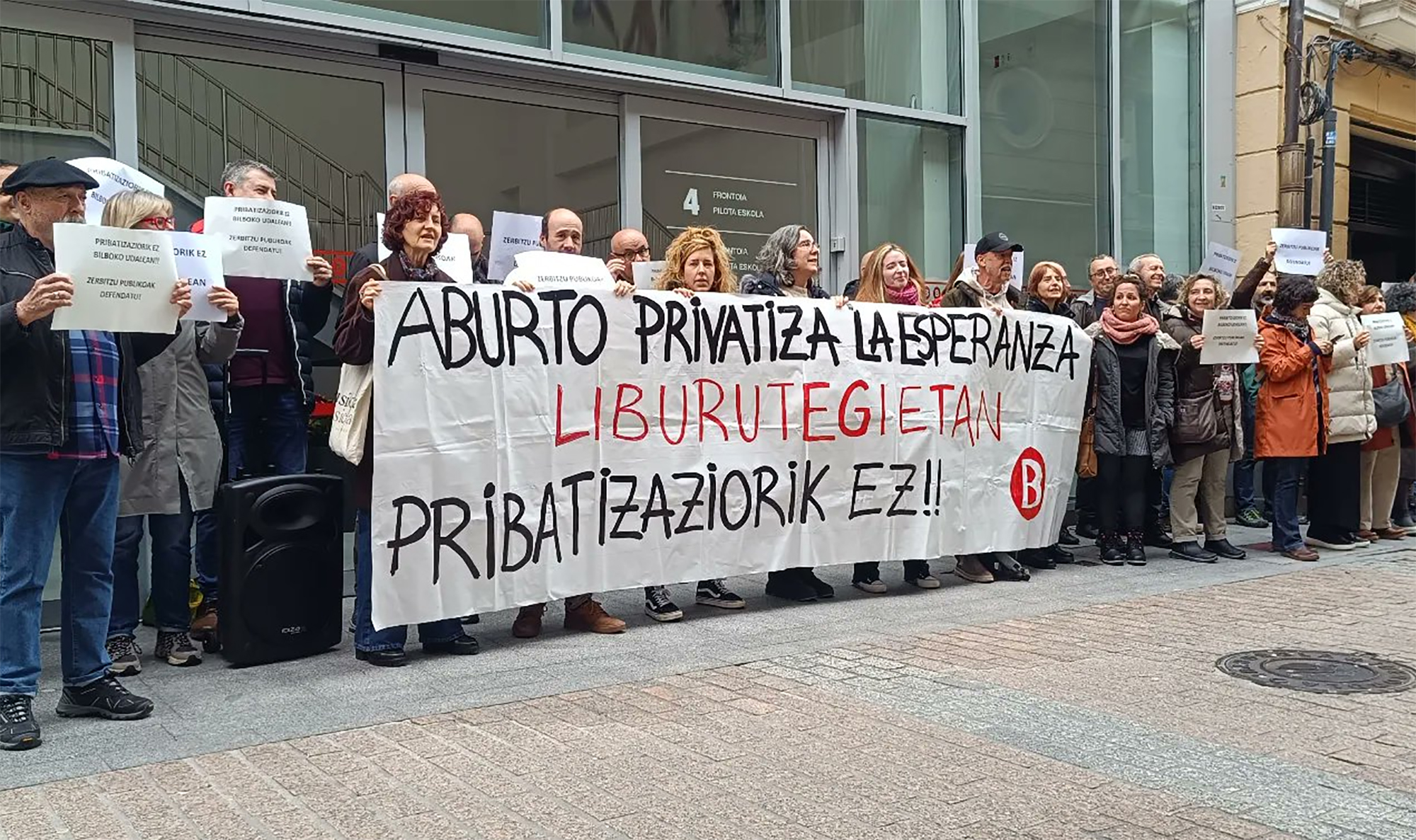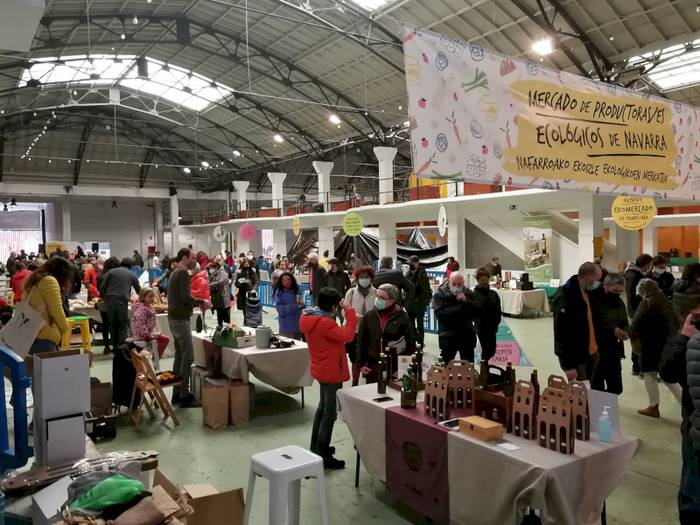Unable to figure out how to communicate
- Communicate in Spanish? The Nor-Nori-Who. This was the title of the conference organized by the Cluster of Sociolinguistics in the Summer Courses of the UPV/EHU. There is a concern in the Basque language, if they are inventing communication strategies to promote the Basque language. The course did not leave anyone indifferent.
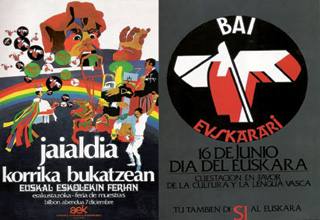
In the two mornings of the conference the room was almost full and although the afternoon round table was less crowded – the beach is one jump from the Miramar Palace in San Sebastián and the weather was excellent – few piper.
At the time of the coffee, the member of an organization that works at the Basque Country mentioned: “We’re always talking about how to communicate.” The Basque technician from a small town told us: “I’ve heard Kamio talk about it more than once. It shakes you and that's why I'm here. Yes, when we promote the Basque language we use eternal forms of communication, we have inertias. But how do we go from theory to practice?”
The course was organized by Belen Uranga of the Cluster and Pilar Calcada, director of communication of Innobasque, and was not a succession that fell from the sky. At coffee time, as in the room, there was concern; what image are we giving of the Basque language? How effective are our communication strategies? The speakers – in addition to those already mentioned, Joxerra Garzia (UPV/EHU), Iñaki Iurrebasoko (Aztiker) and Igor Calzada (University of Nevada) – tried to say those that the audience did not want to hear.
Black comes to the White House
More than one speaker recognized the complexity of the subject; because we are talking about communication and what we have to communicate, the language. Joseba Kamio said on the first day that the subject and the objective that we had on the table are very complex. On the second day – because the wood had already been softened – he pointed out that the subject is very complex. Pilar Calzada, wanting to awaken hope, gave us two options: to dare and try or kill ourselves. It wasn’t easy for the Negro to get to the White House, but they did.
The need to adapt to new times
How to promote Basque in the new context of communication? I mean, in the digital age, in the age of globalization, how to prepare the message? For whom? For whom? How to get it to you? The model of sender-channel-receiver is dead and the social networks provide a thousand other possibilities. Have we started taking advantage of them?
As for his capacity for change, Kamio said clearly that he sees the whole dialect as institutionalized, comfortable. The agent feels incapable of change and expects the communication agencies to do their homework. The director of Harman told us about his experience, linked to the Basque language and others. The intention of most clients is to hire the communication agency and make the communication plan, which means that the organization or association works less, and Kamio believes that the opposite is that, even if the communication agency is hired, the client has to work more than before. Pilar Calzada has had a similar experience; the organization, the company, has noticed that it is impermeable. Kamio asks the question: do we need fifteen sociologists in organizations or fifteen marketers – that is, marketers?
What's the message?
You have to develop communication strategies to promote the Basque language, you have to think about campaigns, but what is the message? Joxerra Garzia used the example of the Villabona-Amasa route to explain this issue. We want to go to Amasa, although we do not know where Villabona is. First we have to create the image of origin, that is, what is the image of the Basque language? What do people think about Russian? If we don’t know that, we won’t know which way to go to get the image we want to give to Basque. Garzia said thus: “It doesn’t matter what you think, you have to know what people think.” Kamio took one more step: “We’ve been with people for a long time.” The
director of the company, Harman, explained what he considered to be the characteristics of the communication strategies of the dialect. The dialect develops the psychology of the oppressed, defensive psychology. It is constantly working on communication, but above all it is quantitative: registration data, so many demonstrations... Instead of figures, he would communicate experiences. The indicators of the psychology of the oppressed would be pity, denunciation, anger, shouting, condemnation... He compared the Basque language with Greenpeace. Greenpeace tells us that the planet is dying, but it also carries out drastic actions to the point where activists risk their lives. The dialect says that the Basque language is dying, but the actions are not equivalent to this. There is no correlation between what has been said and what has been done. By the way, he proposed to look at ecological marketing for linguistic marketing, because there is something to learn in this field.
Question from Belen Uranga: but does the message have to be unique? Response from Kamio: “Yes, and please.” It's hard to work on just one message. This has been highlighted by more than one speaker and listener, who, in the words of Joxerra Garzia, gathers for the hustle and bustle of the dialectic debate. Are you ready to work together on a unique message to promote Basque? Pilar Calzada gives an example: he is carrying out campaigns in different localities to promote the Basque language in commerce. Maybe we're running similar campaigns in one and the other. Can these actors with the same objective not come together and prepare the campaign?
Housework for the Cluster
Communication strategies, yes, but they must be done beforehand. Agents who want to promote the Basque language should be informed, they should know what we are talking about. During the course, it was recognized that this work can be carried out by the Sociolinguistic Cluster. The basis is sociolinguistics, which, in Kamio’s words, are otherwise communication strategies, campaigns, aesthetic happenings or diverticism.
Therefore, on the one hand, the need to have solid foundations for the development of good communication strategies was emphasized, and on the other hand, both speakers and listeners put homework to the Sociolinguistics Cluster: to do the work of theorizing about communication strategies and compile the communication strategies that have been carried out.
Here and there was a feeling that what is being done in the field of communication in general is not valid today. That the frustration is widespread in the way in which the objectives set and carried out by the campaign are not met. Kamio told listeners that they might have gone to the course looking for recipes, but he didn’t have any.
Instead of recipes, we were shaken by the audience, the dialect. The fear of Kamio, if he had given us wood. What he said in succession: it serves to make sculptures like burning wood.
Jarritako kondenak barkatzearen truke, armadara batu da preso andana. Azken urtean, errekrutatze-legeak gogortu ditu gobernuak.
Arma nuklearren produkzioarekin, mantentze lanekin eta modernizazioarekin loturak dituzten hainbat enpresa aztertu dituzte, eta horien artean agertzen dira BBVA, Santander bankua eta SEPI.
Iazko urriko bileran lortu ez zuten akordioa erdiestea espero dute COP16ko parte-hartzaileek, eta ostegun honetan dute gailurraren azken eguna. 2030. urtea bitartean, bioaniztasunaren alde 200.000 milioi dolar bideratzeko engaiamendua hartu zuten 2022ko COP15 gailurrean, eta... [+]
570.000 familiek euren haurren ikasgeletako hizkuntza nagusia zein izango den bozkatzeko aukera dute martxoaren 4ra arte: gaztelera edo katalana. Garikoitz Knörr filologoaren eta euskara irakaslearen arabera, kontsultak "ezbaian" jartzen du katalanaren... [+]
Martxoaren 29an ospatuko dute irratiaren 40. urteurrena, musika, literatura eta tailerrak bilduko dituen Txapa Egunarekin.
"Ipar Euskal Herria gaztez odolusten ari da". Sail berriak sortu goi-mailako ikasketetan, etxebizitza sozialak egin gazteentzat edo aisialdia euskaraz bermatu… Hamabost proposamen konkretu egin ditu Xuti Gazte ezker abertzaleko gazte antolakundeak.
Uribe Kosta BHI institutuko hainbat ikaslek salatu duenez, mezu "iraingarriak, matxistak eta homofoboak" jaso dituzte Batxilergoko beste ikaskide batzuengandik. Horrez gain, gaineratu dute mezuak irakasle bati ere bidali dizkiotela eta beste ikasle batzuen... [+]
Urruña, 1750eko martxoaren 1a. Herriko hainbat emakumek kaleak hartu zituzten Frantziako Gobernuak ezarritako tabakoaren gaineko zergaren aurka protesta egiteko. Gobernuak matxinada itzaltzeko armada bidaltzea erabaki zuen, zehazki, Arloneko destakamentu bat. Militarrek... [+]
Aiaraldeko hainbat irakaslek mezua igorri diete ikasleen guraso eta familiei, dagoen informazio zurrunbiloan, grebarako arrazoiak modu pertsonalean azaltzeak euren borroka eta lanuztea hobeto ulertzeko balioko dielakoan.
Biologian doktorea, CESIC Zientzia Ikerketen Kontseilu Nagusiko ikerlaria eta Madrilgo Rey Juan Carlos unibertsitateko irakaslea, Fernando Valladares (Mar del Plata, 1965) klima aldaketa eta ingurumen gaietan Espainiako Estatuko ahots kritiko ezagunenetako bat da. Urteak... [+]
Ezpatak, labanak, kaskoak, fusilak, pistolak, kanoiak, munizioak, lehergailuak, uniformeak, armadurak, ezkutuak, babesak, zaldunak, hegazkinak eta tankeak. Han eta hemen, bada jende klase bat historia militarrarekin liluratuta dagoena. Gehien-gehienak, historia-zaleak izaten... [+]
Martxoaren 8a hurbiltzen ari zaigu, eta urtero bezala, instituzioek haien diskurtsoak berdintasun politika eta feminismoz josten dituzte, eta enpresek borroka egun hau “emazteen egunera” murrizten dute, emakumeei bideratutako merkatu estereotipatu oso bati bidea... [+]
Euskal hezkuntza sistemaren itunpeko eskolen gainkontzertazioa eta zentro pribatuen umeak hartzeko gaitasuna beherakada demografikoari eta biztanleriaren klase osaketari egokitu behar dira.
Bilboko Udalak zerbitzu publikoak pribatizatzen jarraitzen duela salatu du Bilboko Liburuzainen kolektiboak, besteak beste, kulturari loturiko zerbitzuak. Horren harira, mahai-ingurua antolatu dute martxoaren 3an Bidebarrieta liburutegian, Kulturaren pribatizazioa izenburupean.
Martxoaren 1ean ospatuko du NNPEK-k urteurrena argazki erakusketa eta txalaparta ikuskizun batekin.









